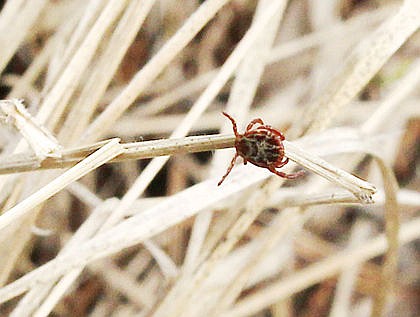Tick season is in full swing
BONNERS FERRY — Only a select few tick varieties bite and transmit disease to people — unfortunately, North Idaho is one area where some of those “select few” ticks reside.
Panhandle Health District has seen an increase in tick-related calls recently, reports of bites, and tick-related illness. As people spend time outdoors and enjoy the improving weather, PHD officials reminded residents to take proper precautions when encountering ticks.
Tick bites can be avoided by using simple prevention strategies. Use tick repellents when enjoying the outdoors. Speak to your veterinarian about tick prevention products for pets. Reduce tick habitats in your yard by removing tall grass, brush, and maintaining wooded areas.
Although ticks are most active in the spring and summer, an encounter can happen any time of the year.
"Ticks can cause a high level of disease in North Idaho; they carry many different types of bacteria, viruses, and protozoans that can cause serious infections,” said Malia Nogle, PHD epidemiologist. “These infections include Rocky Mountain Spotted Fever, Tick Paralysis, Tularemia, and Lyme Disease.”
Of the ticks that bite people, different species of ticks transmit different diseases. If you have received a bite from a tick or other pest lookout for symptoms such as: fever, headache, rashes, fatigue and flu-like illness.
After visiting the outdoors, check yourself and others for any ticks that might still be attached to your clothing or skin.
If there is a tick attached to your body, carefully remove the tick by grasping it with fine-tipped tweezers as close as possible to your skin, then apply a steady, gentle pull until it releases. Do not try to get the tick to release from your body by using fire/flames or chemicals.

